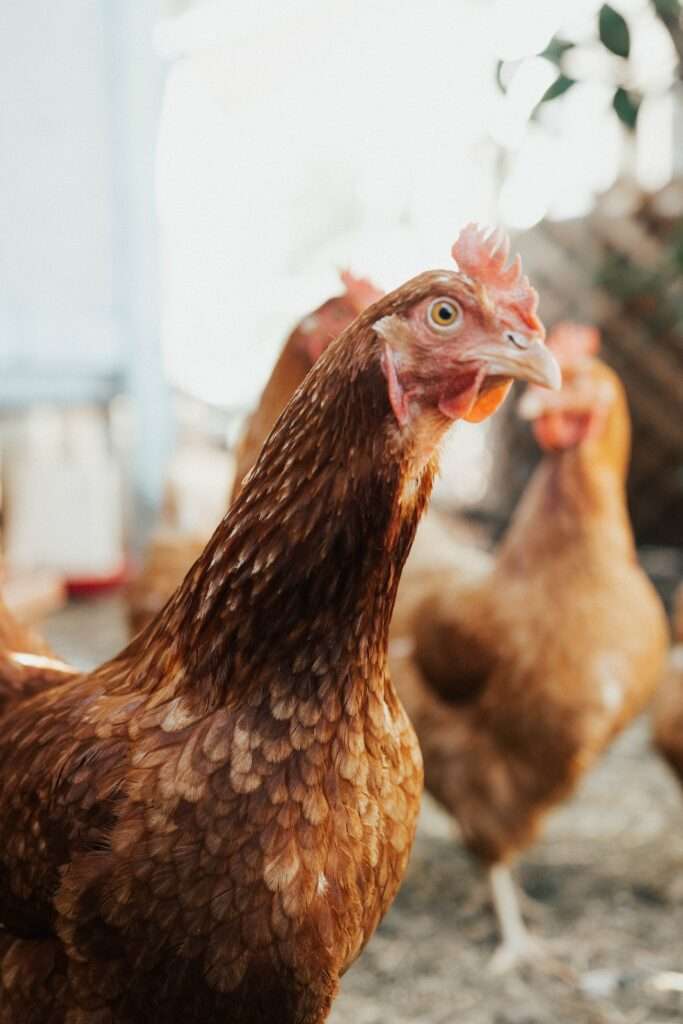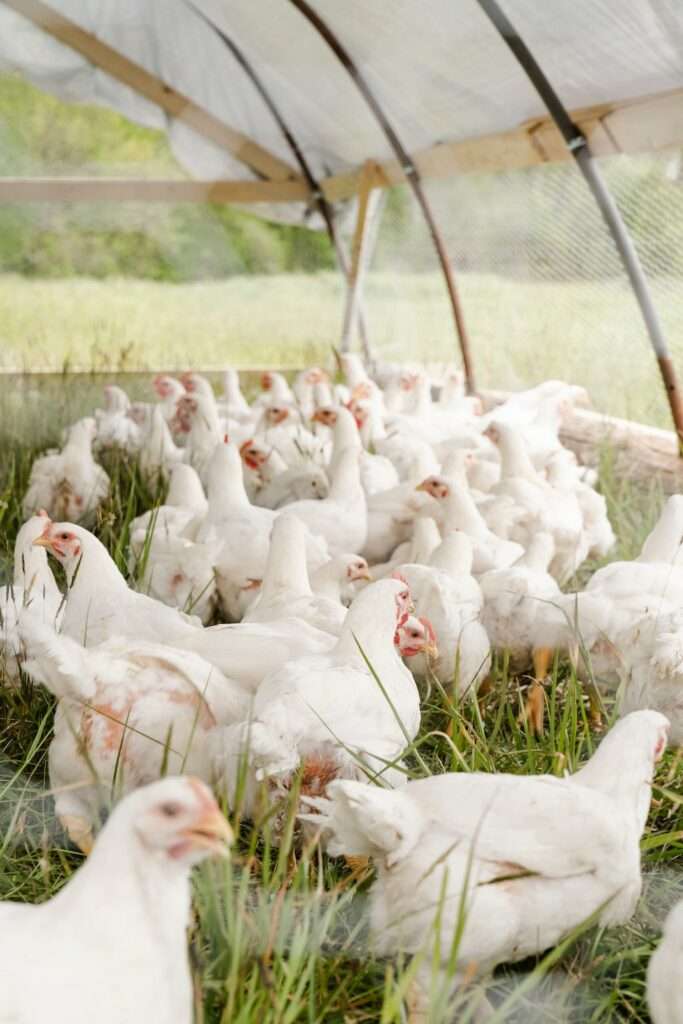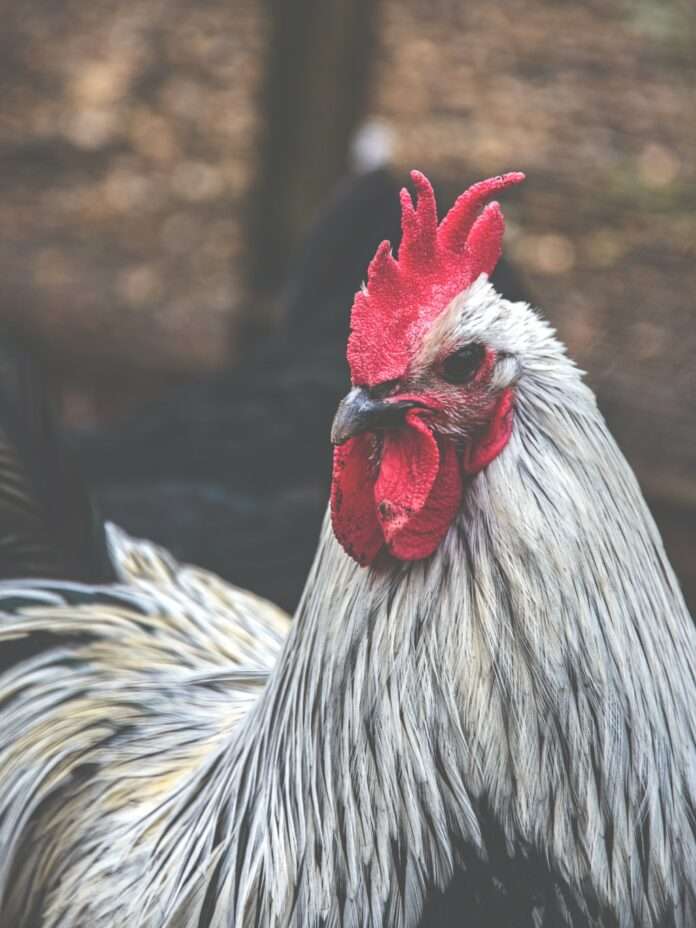The bird flu outbreak is, undeniably, becoming more alarming. But how worried should we be about another pandemic? And is this a sign that the factory farming era needs to come to an end?
Bird flu has been around for quite some time now. In fact, it can be traced all the way back to the 1880s, when people noticed a disease was killing poultry in Europe, and so they called it the “fowl plague.” But the latest outbreak, which started in October 2021, has been particularly concerning for a few reasons.
Firstly, the virus has caused the deaths of more than 140 million farmed birds around the world, and it has also severely impacted wild bird populations, say experts. But it also seems to have spread to other animals.
In February 2023, there was an outbreak of bird flu at a Spanish farm, which was home to almost 52,000 mink. It has also impacted other mammals, like bears, foxes, and raccoons, and in Peru, it appears to be spreading among sea lion populations.
The real human risk of factory farming
Much of the food system relies on animal agriculture. In the U.S., 99 percent of farm animals, which includes cows, pigs, sheep, chickens, and turkeys, are raised on industrialized factory farms to produce products like milk, cheese, eggs, and meat.
This way of producing food comes with several major drawbacks. For one, it relies on the slaughter of billions of living creatures. It is also a leading cause of deforestation and emits 14.5 percent of greenhouse gasses into the atmosphere. But it’s also a major disease risk.
Thijs Kuiken of Rotterdam’s Erasmus University Medical Centre told the Guardian that large populations of livestock “form reservoirs where infectious diseases can evolve and spill over into wildlife, occasionally with devastating consequences.”

The spread of bird flu, for example, has caused the worst loss of wild birds for decades. African swine fever, a highly contagious DNA virus, doesn’t just impact domesticated pigs, but also wild boar. For that reason, a number of experts are calling for a shift away from intensive animal farming.
But there’s another reason to change the way we treat animals: their diseases can also impact us too. According to the World Health Organization, in the last three decades, more than 30 new human pathogens have been detected, and about three-quarters of those started in animals.
And, as Compassion in World Farming notes, when it comes to the pandemic risk from factory farming, “we are not dealing in hypotheticals.”
“Before COVID-19, the last global pandemic was in 2009. Then, a swine flu emerged from multiple viral gene ‘reassortment events’ in farmed pigs, and killed between 150,000 and 575,000 people,” the nonprofit states. “La Gloria, the Mexican town widely identified as the pandemic’s source is just five miles from a major concentration of industrial pig farms.”
In 2020, amid the COVID-19 pandemic, a research paper from the Humane Society International (HSI) also called on governments to speed up the transition to a plant-based food system for the sake of human health.
“Covid-19 has shown clearly that we cannot keep pushing animals to the limit of their endurance and expect to remain isolated from the effects,” HSI UK’s executive director Claire Bass told the Independent. “The food strategy must robustly challenge our love affair with cheap meat, and rapidly chart a course towards plant-centric diets as the new norm.”
But in the meantime, how worried should we be about bird flu?
It’s important to note that while bird flu is spreading among mammal populations, many scientists are not currently concerned about the virus causing a human pandemic.
That’s not to say bird flu can’t spread to us though.
In February 2023, a young girl from Cambodia died from the virus, which she likely contracted directly from an infected bird. Her father has also tested positive, and some other individuals she had been in contact with are also presenting with flu-like symptoms. Experts are now tracking the potential “cluster” outbreak, although there is no evidence to suggest it was definitely passed from one human to another.

“What we need to be watching for is any unexplained cases,” Professor David Heymann of the London School of Hygiene and Tropical Medicine told the Telegraph. “[One] which can’t be traced back to an infected human, bird or mammal.”
The case in Cambodia has led some health officials to start modeling bird flu pandemic scenarios as a precaution. But many experts are also keen to reassure people that the risk is still minimal.
James Lowe, who works as a professor of veterinary clinical medicine at the University of Illinois, told Reuters: “We know that avian viruses can occasionally affect people, but it takes what appears to be lots and lots of contact with birds.” He added: “Should we keep an eyeball out for this? Yes. Should we lose our minds over it? Probably not.”
Related on Ethos:


